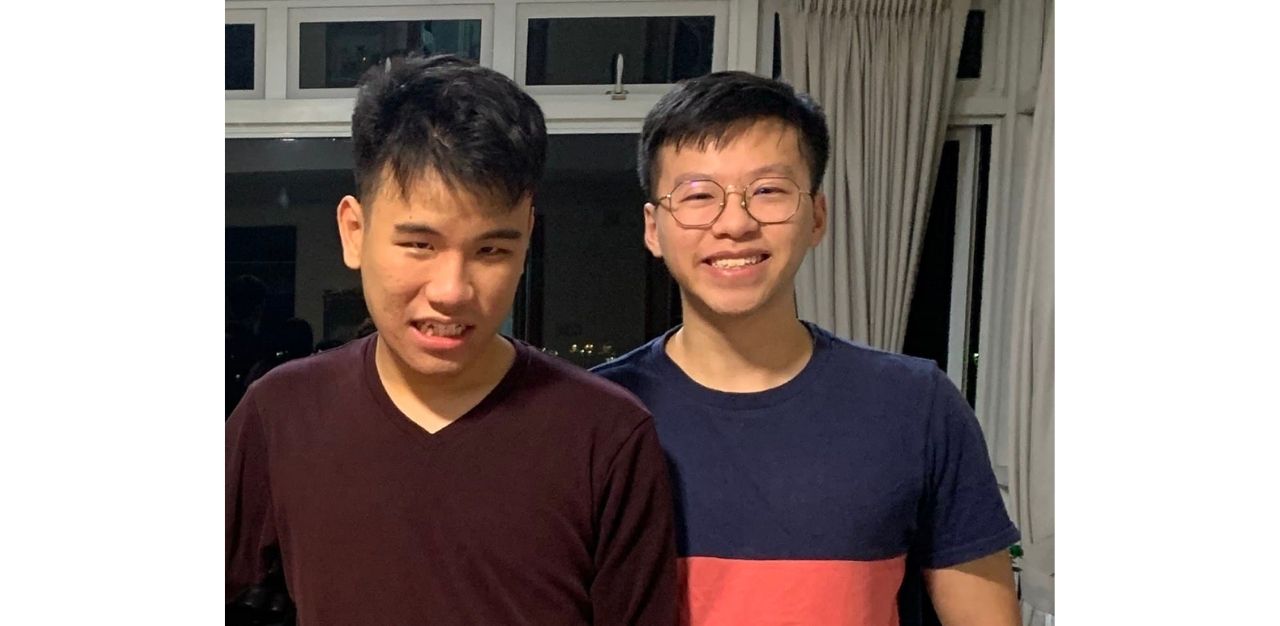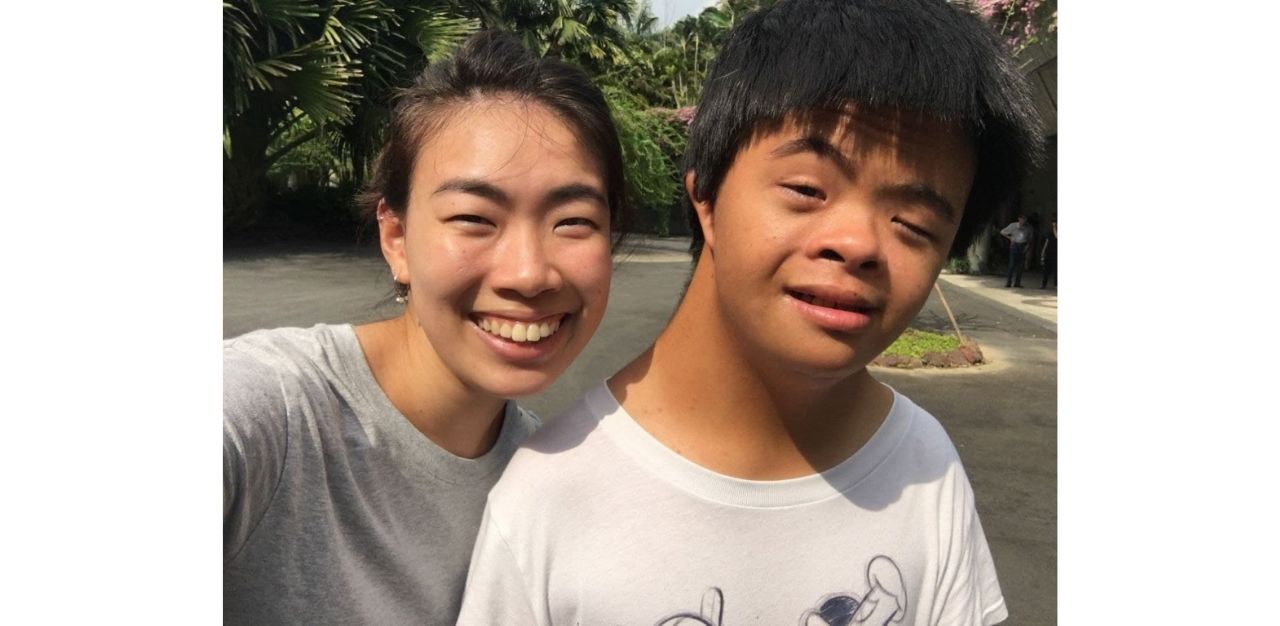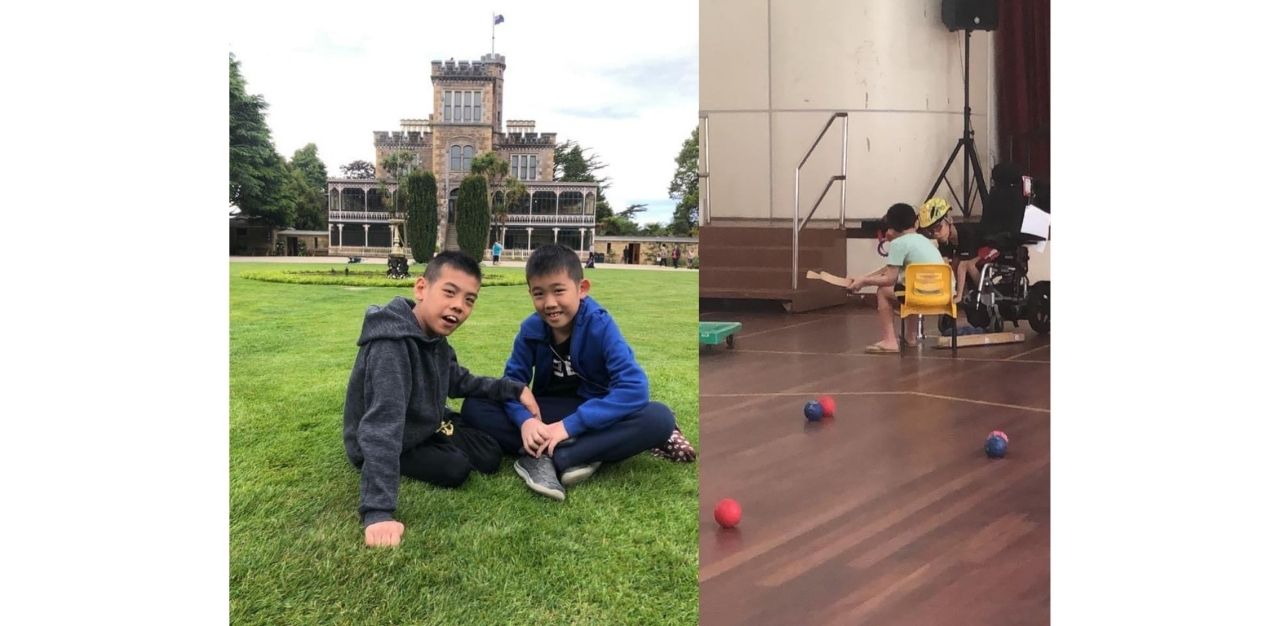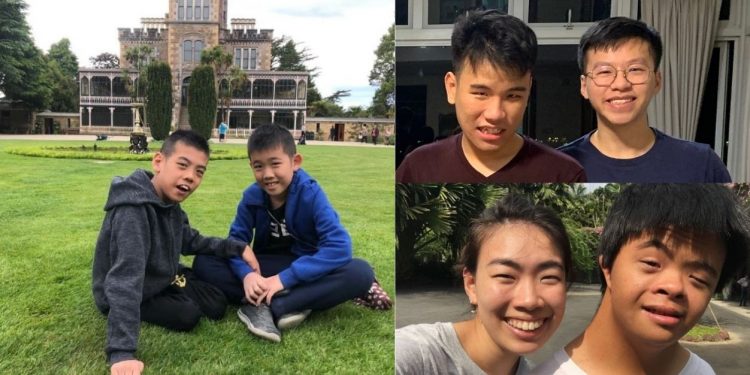Having a sibling with special needs is a reality some children are born into and the parents’ attention is often occupied by the children with impairment. It is the needs of these “normal” kids that often get neglected and have their stories untold. Additionally, an often overlooked consideration is that these siblings would inherit the role of lifelong caretakers, causing feelings of resentment and stress. TheHomeGround Asia speaks to three individuals to find out how growing up with a special needs sibling has affected their worldview, family dynamics, and their plans for the future.
We often hear from parents of special needs children. But what about their siblings? Why are they not routinely talked about? Do they feel overshadowed by their special needs brothers or sisters? When they are older, how far are they willing to go to take care of their kins who have disabilities?
Special needs = special treatment?
Growing up with a brother with autism essentially made student Jonathan Ng, 25, feel like he never really had a brother. “I’d never really considered him an actual person in a sense that I can’t hold a conversation with him about anything important,” he says. “I can only give him instructions like, ‘lower the volume’.”
Mr Ng used to fantasise about what it would be like if his brother wasn’t on the spectrum. Oh, the kind of conversations they would have.
His brother Joshua, who is two years younger, has the mental age of a three to four-year-old child. Joshua spends his day at Eden School, and enjoys watching kids cartoons like Sesame Street, or playing old school computer games when he is home.
Growing up, Mr Ng did not understand why his parents treated them differently. “It felt like my parents allowed him to get away with a lot because of his condition,” he says.
“I wish my parents had explained things a little bit more, instead of just telling me that Josh is special and that we need to give him special treatment because that always made me feel that they weren’t putting in any effort. I actually thought they were being hypocrites,” he adds.
When the brothers fight, things used to get physical. “My parents would try to mediate, but I think they didn’t know how to explain the situation very well, and would usually take the shortest route out without much care for how I felt,” Mr Ng recalls.
Going away for his National Service and then to university was what gave Mr Ng new perspectives on how he could have treated his brother and family differently, and he believes that the physical distance and time apart allowed him to mature. “It was also nice finding out that a friend has a special needs sibling. We were able to share similar issues that we went through,” he adds.
These days, Joshua still has his difficult moments, and would sometimes shove their mother or youngest brother, but he continues to be afraid of Mr Ng. “I used to be violent with him when we were kids, so whenever I go near him now, he’d flinch a little from the memory, but I don’t ever hit him.”
Mr Ng wishes that he had treated his brother with a little more kindness when they were growing up, but as the pressures of adulting set in, the looming prospect of him being his brother’s lifelong caretaker has put significant stress on Mr Ng. “I’ve been thinking about moving overseas,” he says. “But if I set up my life abroad and my parents pass, then I would probably have to uproot again and come back to take care of Josh.”
Their father has set up a trust fund for Joshua, but the responsibility of taking care of him is highly likely to fall on Nr Ng, since he is the eldest of the three boys. Also, despite a handful of hospice facilities in Singapore that will help take care of Joshua, Mr Ng still believes that cultural factors contribute to the lack of supply of such resources. “They definitely have more of those in America, but here, it’s like a ‘take care of them until they die’ situation,” he says.
“I sometimes worry because it seems like my family is just postponing the conversation about what we would do with Josh in the future. It seems we are always uncomfortable with tough conversations like this,” Mr Ng adds.

Uncertain future for lifelong caretakers
Like Mr Ng, Cara Ann Lee’s only sibling has special needs. Matthew, 21, has Down syndrome — a chromosomal condition that develops in the womb, yet her parents went ahead with the pregnancy. “I don’t think they’d be able to live with themselves if they didn’t,” says the 26-year-old. “But I see what my parents go through every day and I definitely couldn’t do the same.”
Though she knows she can never have a typical sibling relationship with Matthew, Ms Lee finds the little things about him endearing. “He sits in a corner and stares at running water for hours,” she says. “He also likes to watch the National Day Parade on TV over and over again— the one from 2019, specifically.”
Ms Lee volunteered at the Son-Rise program, which allows participants to interact closely with special needs children with the aim of joining them, not changing them; and that was one of her biggest takeaways. One of the boys there, for example, really likes movie credits, so he would find things to line up like movie credits repeatedly and the volunteers would do the same alongside him.
“I joined that programme because I wanted to understand Matt just a little bit better,” she says. “But I also realised that there’s no single template that applies to them, and every special needs child is unique.”
Regardless, it wasn’t always easy for Ms Lee to come to terms with having a brother with special needs. She says she found it scarily relatable when she watched a scene in the Pangdemonium play Falling.
“The mother dreamt that her autistic son choked on something and died, and the sister started celebrating because she could finally live her life,” she says. “I thought, it’s bad that I resonate with this, right? Sometimes I do wish he did not exist because it’s a lifelong commitment for me.”
Ms Lee says that it was also a big consideration for her partner Trevor Martens-Wong, 26, especially when they first started dating.
“We had a long discussion about this and I think a lot of my repressed feelings about Matt came up then, because I honestly do not want to take care of him in the future,” says Ms Lee, who adds that she understands if her partner does not want to stay in the relationship because of this.
She believes that his attitude towards their now-shared responsibility has since evolved greatly. “I think prior to this, taking care of kids or having anyone dependent on him was a big no-no,” she says.
Now, he takes the lead when it comes to planning for Matthew in the long run. In choosing their future home, Ms Lee says it is her partner who brought up the fact about getting an extra room in case Matthew needs to live with them in future. “It wasn’t even in my consideration,” she says. “I can tell he’s not excited about it, but he does things like this and I’m really grateful for it.”

Early exposure is key
Student Sebastian Gan, 11, has understood from a young age that he needed to be very patient when interacting with his older brother, Aloysius, who is 16 and has cerebral palsy.
“I think some people think that he’s not very intelligent because they don’t know that cerebral palsy only affects [his] muscles,” he says confidently. “He can think perfectly fine, but speaking is sometimes hard for him and his words may not be very clear.”
Sebastian also accompanies his brother, who is a Boccia athlete, to his games. “Boccia is a disability sport, but it still requires a lot of strategy and thinking,” he says, adding that the family also plays the game together on weekends.
Mr Loh Ngiap Kiang, Pathway and Participation, who oversees the sport of Boccia at the Singapore Disability Sports Council, says that Sebastian’s early exposure to an inclusive community through Boccia has allowed him to grow up with a unique attitude towards persons with disabilities. “He has gotten to interact with other special needs athletes and their family members who play as ramp assistants,” he says.
Sebastian’s mother Eve Cher believes that including Sebastian in her focus on Aloysius has made him mature a lot earlier than his peers. “We tried to constantly explain to Sebastian why things are the way they are, so he won’t have to question why he doesn’t get as much attention as his brother,” she says.
The brothers sleep in separate bedrooms, but every Friday and Saturday, Sebastian would have a sleepover in his brother’s room to catch up with him and find out about his school life, Boccia games, or help him with his homework.
“Sometimes, I get upset with my brother because I don’t really understand what he’s saying,” he says. But the brothers use symbol-based communication tools like the app Proloquo2Go to stay connected.
Sebastian looks forward to becoming his brother’s Boccia ramp assistant. “Currently, my father is his ramp assistant. But years from now, I’ll do that, and my father will be the coach,” he says.

For information on resources available for loved ones with special needs, check out SG Enable.
Join the conversations on TheHomeGround Asia’s Facebook and Instagram, and get the latest updates via Telegram.














